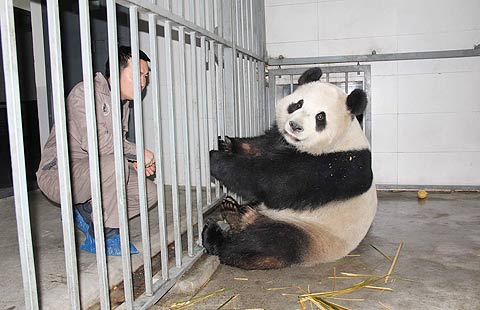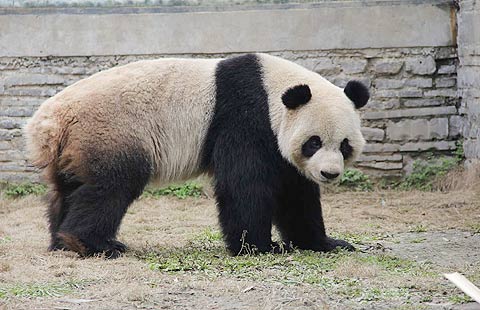Family reunion, first step toward peace on Korean Peninsula
Updated: 2014-02-20 09:27
(Xinhua)
|
||||||||
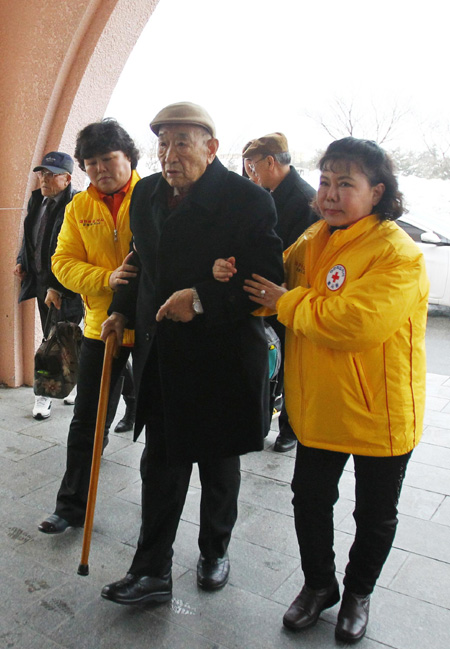 |
|
South Korean family reunion participants gathered in Sokcho will leave Thursday morning for the Mount Kumgang resort in the Democratic People's Republic of Korea (DPRK)'s east coast to meet their long-lost relatives, who have lived in the DPRK for six decades. [Photo/Xinhua] |
Millions of Koreans have been separated from their families since the 1950-53 Korean War ended in armistice, not peace treaty. Around 22,000 Koreans living across the inter-Korean border met at the 18 rounds of family reunion from 1985 to 2010, but many Koreans died without meeting their relatives.
|
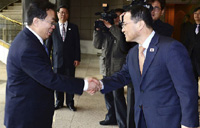 |
In South Korea alone, more than 129,000 people have applied for family reunions since 1988, but almost 58,000 elderly South Koreans have died, with 3,841 people dead in 2013.
Originally, 83 South Koreans were supposed to take part in this round of family reunion, but one participant gave up his trip to the Mount Kumgang resort just a day ahead of the event due to health problem.
In September last year, when the two Koreas exchanged initial lists, the number of participants from South Korea who were picked by lottery was 96, but it fell to 82 due to their deaths and health problems. The figure for the DPRK participants declined from 100 to 88.
South Korean President Park Geun-hye said during a cabinet meeting Tuesday that around 3,800 elderly South Koreans died last year alone without a chance to meet their relatives in the North, instructing cabinet members to come up with fundamental measures to frequently hold the reunion event.
The Park administration, since its launch in early 2013, has focused on the reunion event, or an emotional and humanitarian issue, repeating that it will become the first step toward improved inter-Korean ties, eventually toward peace on the Korean Peninsula.
Relations between the two Koreas were strained further after the DPRK's third nuclear test in February 2013, just two months after its long-range rocket launch. Pyongyang threatened a nuclear strike against South Korea as well as the US territory, escalating tensions on the Korean Peninsula.
The previous Lee Myung-bak administration maintained the so- called"strategic patience"policy toward the DPRK from 2007 to 2012 after Pyongyang's artillery attack against a South Korean island in the western waters.
The inter-Korean relations showed thawing signs from the beginning of this year as top DPRK leader Kim Jong Un voiced his willingness to improve ties with South Korea in his New Year speech. In response to South Korea's call for proving sincerity with action, Pyongyang agreed to hold the family reunion, which Seoul has repeatedly called as the first step toward a new peace era on the Korean Peninsula.
The family reunion will come amid the South Korea-U.S. military exercises scheduled for around two months from February 24, dates that overlap for two days with the humanitarian event. President Park said that it will have a great meaning as the reunion will be held regardless of the joint military drills, which Pyongyang denounced as the rehearsal for a northward invasion.
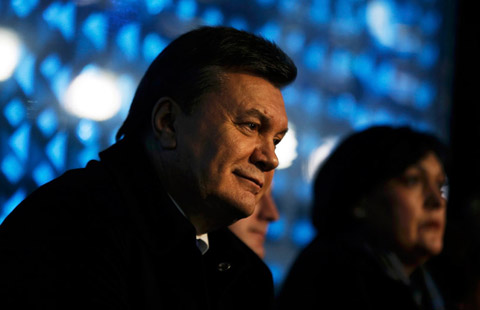
 Ukrainian parliament dismisses president
Ukrainian parliament dismisses president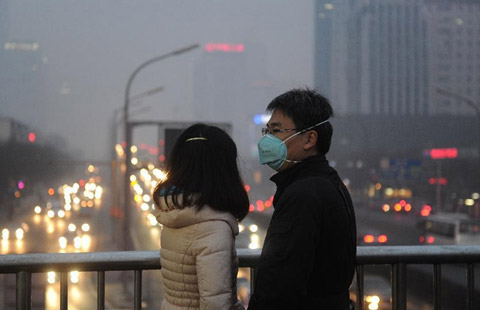
 Beijing upgrades haze alert from yellow to orange
Beijing upgrades haze alert from yellow to orange
 Rare Zhou bronze wine vessel goes on the block
Rare Zhou bronze wine vessel goes on the block
 Reclaiming a heritage lost, stolen or sold
Reclaiming a heritage lost, stolen or sold
 US warns of airline shoe-bomb threat
US warns of airline shoe-bomb threat
 Beijing issues 1st yellow alert for smog
Beijing issues 1st yellow alert for smog
 Beauty queen the latest victim in Venezuela unrest
Beauty queen the latest victim in Venezuela unrest
 Italy court finalizes Berlusconi divorce
Italy court finalizes Berlusconi divorce
Most Viewed
Editor's Picks

|

|

|

|

|

|
Today's Top News
China urges US to correct mistakes on Tibet
9 punished for spreading flu rumor
Beijing upgrades haze alert
China firmly opposes Obama-Dalai meeting
China firmly opposes Obama-Dalai meeting
US views China 'most unfavorable'
US VP calls Ukrainian leader, warns of sanctions
Can Tencent crack US market?
US Weekly

|

|


